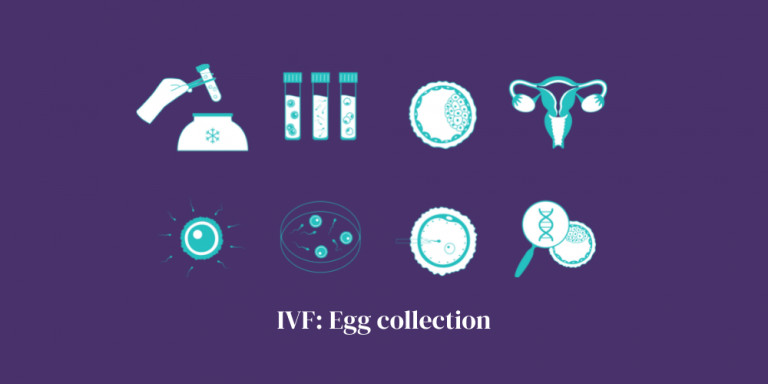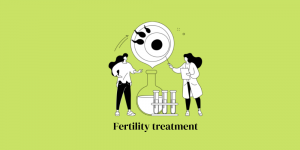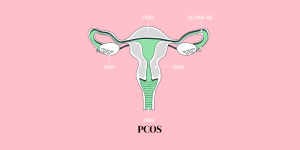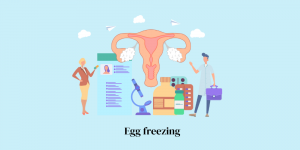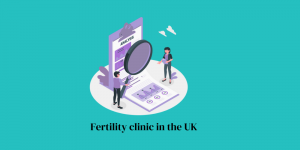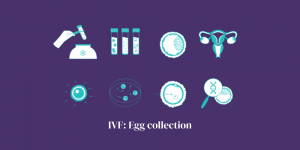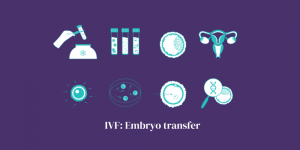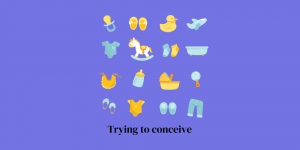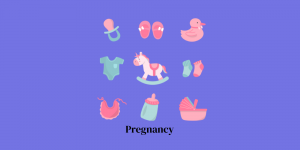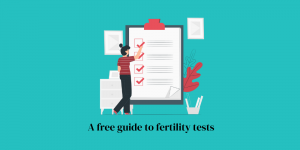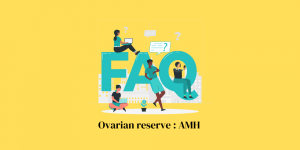Egg collection (or oocyte retrieval) follows the hormone stimulation stage of your treatment. But it can only go ahead when you have enough follicles measuring 16-22mm.
Your fertility nurse will get in touch to let you know when to give yourself the final trigger injection (usually 36 hours beforehand). This ensures your eggs are mature enough and more likely to be successful.
The nurse will also let you know how soon you’ll have to stop eating and drinking before your IVF egg collection.
IVF egg collection explained
Egg collection is fairly straightforward and typically takes up to 20 mins. After changing into a gown at the clinic, you will be given a sedative, to make sure you don’t feel any pain and that you remain still during egg collection.
In the theatre, your IVF consultant inserts an ultrasound probe with a needle attached into your vagina and guides it gently through the vaginal wall into each of the follicles of your ovaries. The fluid inside each follicle, along with any eggs, is collected and transferred into a test tube. The test tube sample is taken to the embryology lab where an embryologist will examine the fluid under a microscope and retrieve the eggs.
You’ll be told how many eggs are collected at the end of the procedure, although, not all the eggs will be suitable for use.
Note that it’s not uncommon to have symptoms similar to a period after egg collection, such as cramps or a small amount of vaginal bleeding.
Preparing for IVF egg collection
You can make sure your IVF egg collection goes as smoothly as possible by planning ahead. To help you prepare, you can:
- Time how long it will take to travel to the clinic
- Arrange to have someone drive you to the clinic and back on the day
- (If relevant) check whether your partner may be asked to produce sperm samples while your eggs are being collected (your partner won’t be in the theatre with you)
- If you take regular medication (for example, for asthma or diabetes), check whether you should take it on IVF egg collection day
- Ask whether you should eat or drink on the day
- You’ll be offered a hot drink or biscuit after egg collection, but take your own if you prefer.
On your IVF egg collection day
- Wear comfortable clothing
- A vest top or short sleeved T-shirt can be worn underneath the patient gown
- Remove all nail varnish
- Don’t wear jewellery
- Don’t wear perfume, body lotion, hairspray and make up, as strong odours can damage eggs.
How long to rest after egg collection
- You’ll be told what medication to take by the clinic nurse. However, you may still be feeling drowsy following the sedation, so ask the nurse to write it down
- You must not drive, so you will need someone to drive you home
- Take painkillers to ease any discomfort
- You’ll need a supply of panty liners or sanitary pads, in case of spotting or bleeding
Relax for the rest of the day and evening. You can return to work the following day, but it’s not unreasonable, following egg collection, to take the next day off.
What happens to your eggs?
An embryologist will contact you to let you know how many eggs have been collected, along with their quality and how many can be used.
For an egg freezing cycle, the good quality eggs will undergo a vitrification process, in which each egg is placed in a small tube and cooled down rapidly by immersing in liquid nitrogen.
For an IVF egg collection cycle, the eggs will be mixed with sperm in the lab, for fertilization to take place. You’ll be advised on how they are developing and when to expect embryo transfer to happen (usually after three to five days).
How does COVID-19 change things?
You will be asked to have a COVID-19 test before any egg collection procedure. If you test positive, your cycle will be cancelled.
You’ll be asked to self-isolate following IVF egg collection.
Egg collection Q&A
Is egg collection painful?
Most women who have the procedure say it isn’t painful, as you’ll be given a sedative You may experience cramps (like period pains), or a small amount of vaginal bleeding, afterwards.
What is a good number of eggs for egg collection?
The quality of the eggs is more important than the number collected. The number of eggs typically depends on your age and health.

